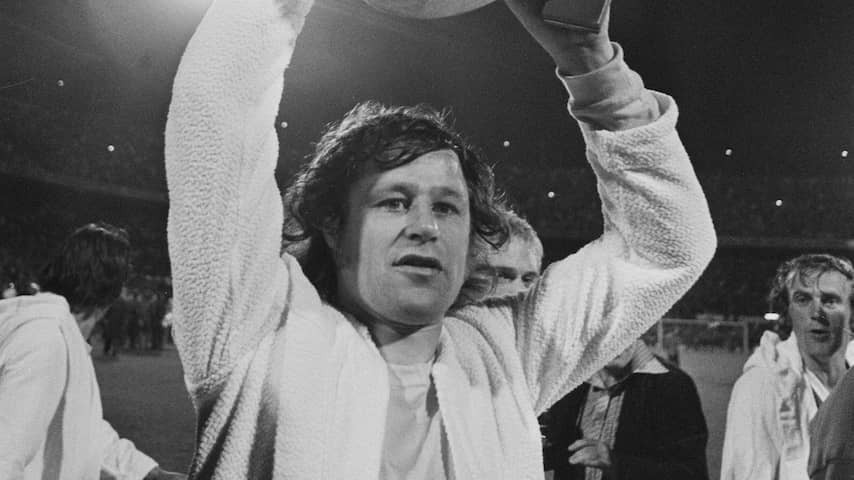
Rinus Israël remains inextricably linked to the European Cup I victory in 1970 for Feyenoord fans. The rock-solid defender scored the 1-1 against Celtic, who were defeated 2-1 after extra time. The purebred Amsterdammer became an icon in Rotterdam.
The black-and-white images illustrate the magic of that special evening in Milan in 1970, when Ernst Happel’s Feyenoord defeated Scottish side Celtic 2-1 after extra time. Israël scored the 1-1, striker Ove Kindvall scored in extra time after an assist from Israël. The bespectacled defender became the symbol of Rotterdam’s resilience.
Forever, Israël remained ‘Iron Rinus,’ or just ‘Iron’. Smiling, he would tell journalists that there was only iron left in his body to hold his bones together. Ajax player Sjaak Swart spoke with awe about Feyenoord’s illustrious defensive duo. ‘Iron Rinus’ formed a feared partnership with Theo ‘The Tank’ Laseroms.
Their nicknames illustrated their reputation. Smiling, Israël acknowledged that in the current VAR era, his rock-solid tackles would usually have meant that he would not have finished the match.
Laseroms was also not averse to a ‘doodschop’ (a very hard tackle). With Willem van Hanegem as conductor in midfield, the Feyenoord of 1970 combined frivolous and attacking football with a ruthless survival instinct.
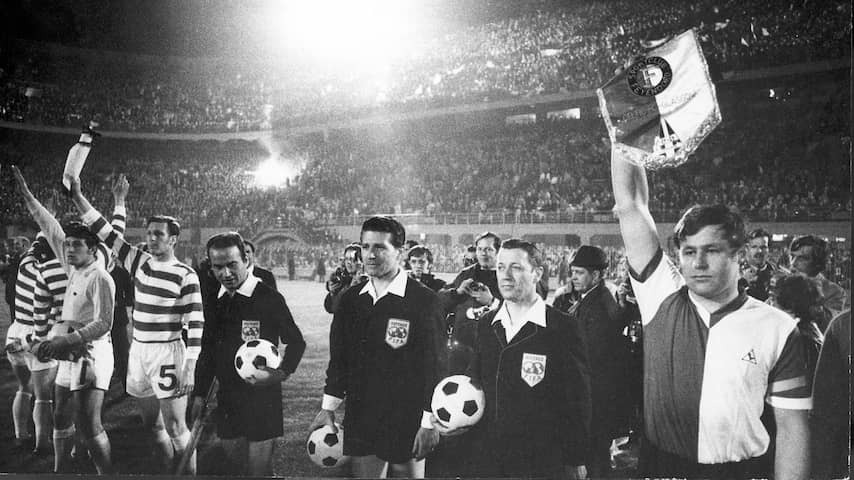
Theater did not suit modest Israël
Israël played as a strong header at the peak of his powers. Of course, he scored against Celtic with a header. “At Feyenoord we played a lot of tennis football, so with training I had about five hundred of those kinds of balls,” he told Helden in 2020. After his goal, he raised his hand and “didn’t make a scene.” Because theater didn’t suit the captain, who was so modest off the field.
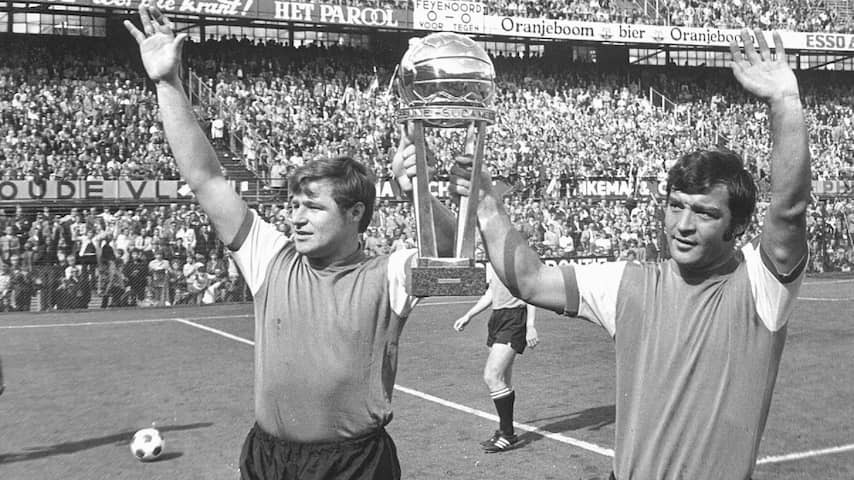
Israël did not understand animosity between Amsterdam and Rotterdam
Marinus David Israël made his professional debut with Amsterdam’s DWS, with whom he became national champion in 1964. In 1966 he moved to Feyenoord for a record amount of 450,000 guilders. He never understood the animosity or hatred between the two cities. He grew up in a time when Ajax and Feyenoord players would go to Leidseplein together for a drink after a Klassieker (classic match).
At Feyenoord, Israël grew into the undisputed leader of a team that is still revered as one of the best teams ever in De Kuip. Coach Ernst Happel called ‘Der Rinus’ the best libero in the world with a refined kick, a great understanding of the game and a ruthless duel force.
Israël became national champion three times with Feyenoord, won the European Cup I and the World Cup, the UEFA Cup and the KNVB Cup. He played 47 international matches. The glorious 1974 World Cup came just a little too late for him. National coach Rinus Michels hardly gave him any playing time, not even in the lost final against West Germany.
After two tough knee injuries, Israël made a fresh start at Excelsior, after which he became champion of the Eerste Divisie with PEC Zwolle in 1978. Until he was forty, Israël remained the leader of the defense in Zwolle.
Also as a coach, Israël manifested himself with his sometimes cynical humor. In his biography IJzeren Rinus, he told writer Harry Walstra how he once cheered up Go Ahead player Jan Veenstra, who was lying bleeding on the ground after a duel with Laseroms and was missing a few teeth: “Come on Jantje, just clench your teeth.”
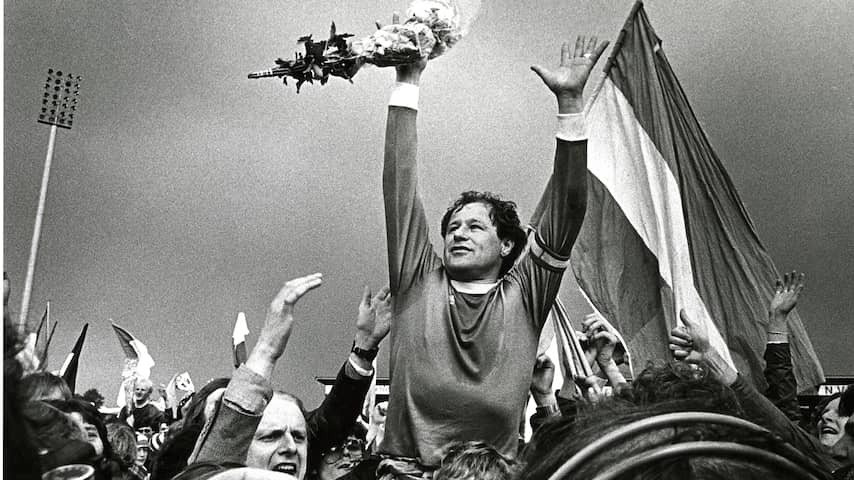
Israël always provided a laugh as a coach
Israël was perhaps too good-natured for the coaching profession. Moreover, he sometimes found it difficult to empathize with players who could not match his former level. But as a coach, he always provided a laugh, even when he lost 7-0 with FC Den Bosch against Leo Beenhakker’s Ajax. “From the dugout I heard my defenders snoring. You too, Leo?”
Israël was assistant to Dick Advocaat and Guus Hiddink in the Dutch national team in the 1990s and later became champion with Dinamo Bucharest (1992), Al Wahda from the United Arab Emirates and with ADO in the Eerste Divisie (2003).
Israël always lived in Landsmeer. He became the biggest fan of his handball-playing granddaughter and former international Rachel de Haze, now coach of VOC. Even then, grandpa did not refrain from commenting. “She will hear it if I think she is not doing well,” Israël told NH Nieuws in 2013.
His football career left its physical marks. Israël got a new knee and had to undergo hip surgery. At the end of 2017 he recovered from a “threatening paraplegia”, as he described it in De Telegraaf a year later. “Slowly all the strength disappeared from my body. I had a 50 percent chance of ending up permanently in a wheelchair.”
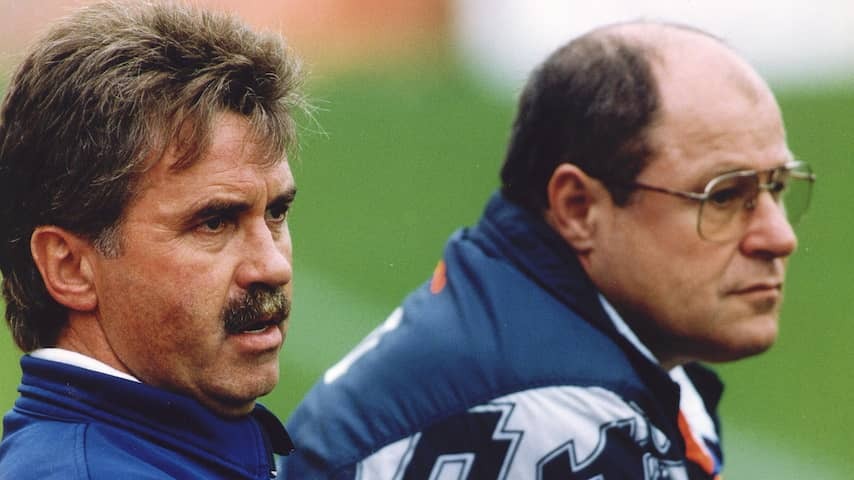
Israël regularly said that he was afraid of death. During the double interview in de Volkskrant, Swart nodded in agreement when Israël said that he was relieved every day when he woke up. “I’m scared, Sjaak,” Israël said.
After a bike ride, he took a bath to recover as well as possible, because in his mind death was cycling with him. In this way, the rock-solid defender of yesteryear also moved with his ode to life. And he preferred to stay in the background.
After an illness, grandson Davey de Haze announced the death of his grandfather on Tuesday. One more time he had seen ‘Iron Rinus’ fight. “But even you couldn’t win this impossible battle.” Israël was 83 years old.